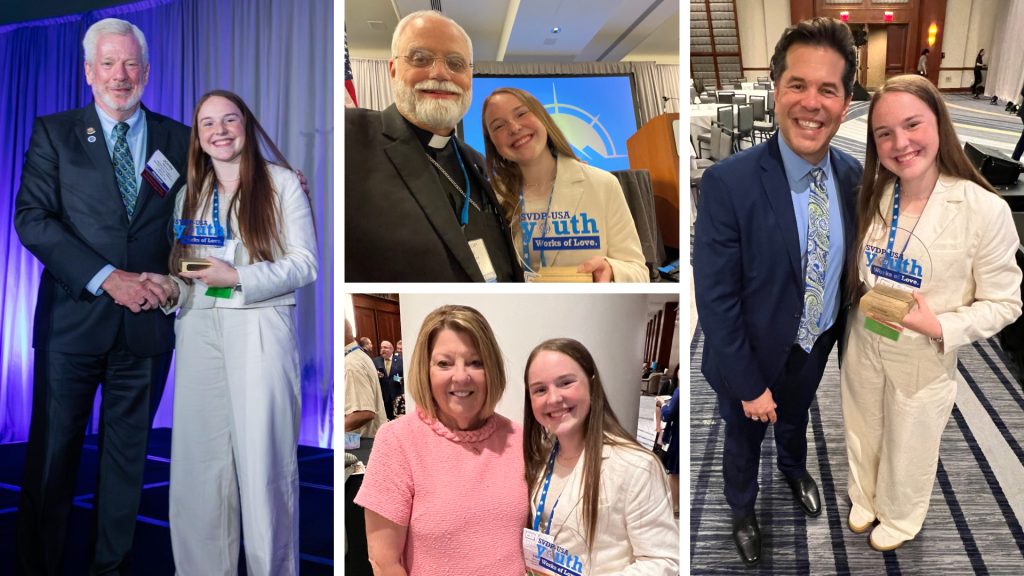Young People in the Spotlight for the 2025 Young Vincentian Excellence Awards
By Linda Roghair, National Vice President of Youth, Young Adults & Emerging Leaders
A Society-wide search for young people doing amazing work in their community is happening now.
Vincentians from across the U.S. are invited to nominate emerging young Vincentian servant leaders from their Conferences, Councils, and Special Works for two Young Vincentian Excellence Awards which will be presented at the National Assembly in Louisville, KY in August.
We are asking Vincentians to nominate a young person who serves the Society in their community, embodies servant leadership, and has a passion towards the Vincentian Charism. Nominations are open now until May 15, 2025.
Submission Requirements
- Nominees must be involved in the Society of St. Vincent de Paul USAin some capacity (ie. Youth Conference, Youth University Conference, Adult Conference, Special Works, etc.).
- Age groups: Youth 16-18 (High School) or Youth University (18-University age), and Young Adults (18-40)
- Include photos, volunteer logs, etc. if possible
- Nomination Form must be submitted via email to: YYAEL@svdpusa.org by May 15, 2025. Please include your Conference President, Council President, NCM & Regional Vice President when submitting a nomination.
Award recipients will be gifted a paid trip to participate in the 2025 National Assembly in Louisville, KY (August 28 – 30). Award recipients must commit to attending the National Assembly in order to receive the award.

Last year’s award winner Sarah of the Madison Wisconsin St. Vincent de Paul Youth Service Council had this to say:
“For me being a Vincentian means actively growing in my faith through allowing the grace of incarnational charity to fuel impactful service and beautiful friendships. Winning the Young Vincentian Excellence Award allowed me the opportunity to attend the National Assembly and connect with the Society on a larger scale. I am especially grateful for becoming a member of the YYAEL Team since this amazing group of passionate young people keep me connected to the Society while I am at a college with no current SVdP presence.”

Last year’s award winner Zoie Roghair of the Sioux Falls St. Michael Conference had this to say:
“I am grateful for what this award represents—opportunity, future growth, and community,” said Zoie Roghair of the Sioux Falls St. Michael Conference. “The award and Society have opened many doors for servant leadership, advocacy for the voiceless, friendships, and increasing the involvement of Youth and Young Adults. It is something I will cherish forever.”
Do you know a young person who serves the Society in their community, embodies servant leadership, and has a passion towards the Vincentian Charism? Please submit a completed form and any supplemental material to YYAEL@svdpusa.org by May 15, 2025.



 Annual reporting is an essential requirement for all Councils and Conferences.
Annual reporting is an essential requirement for all Councils and Conferences.

